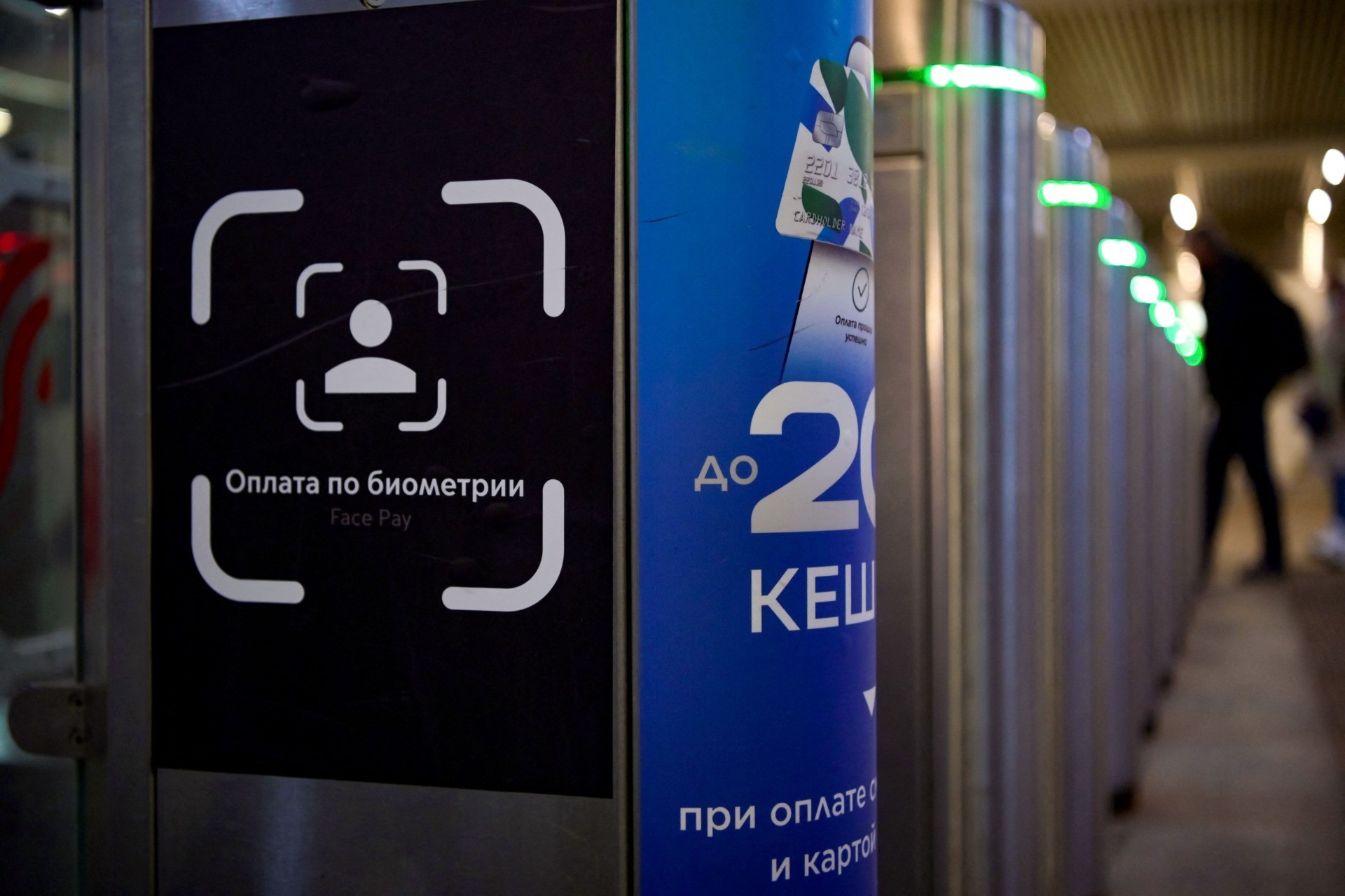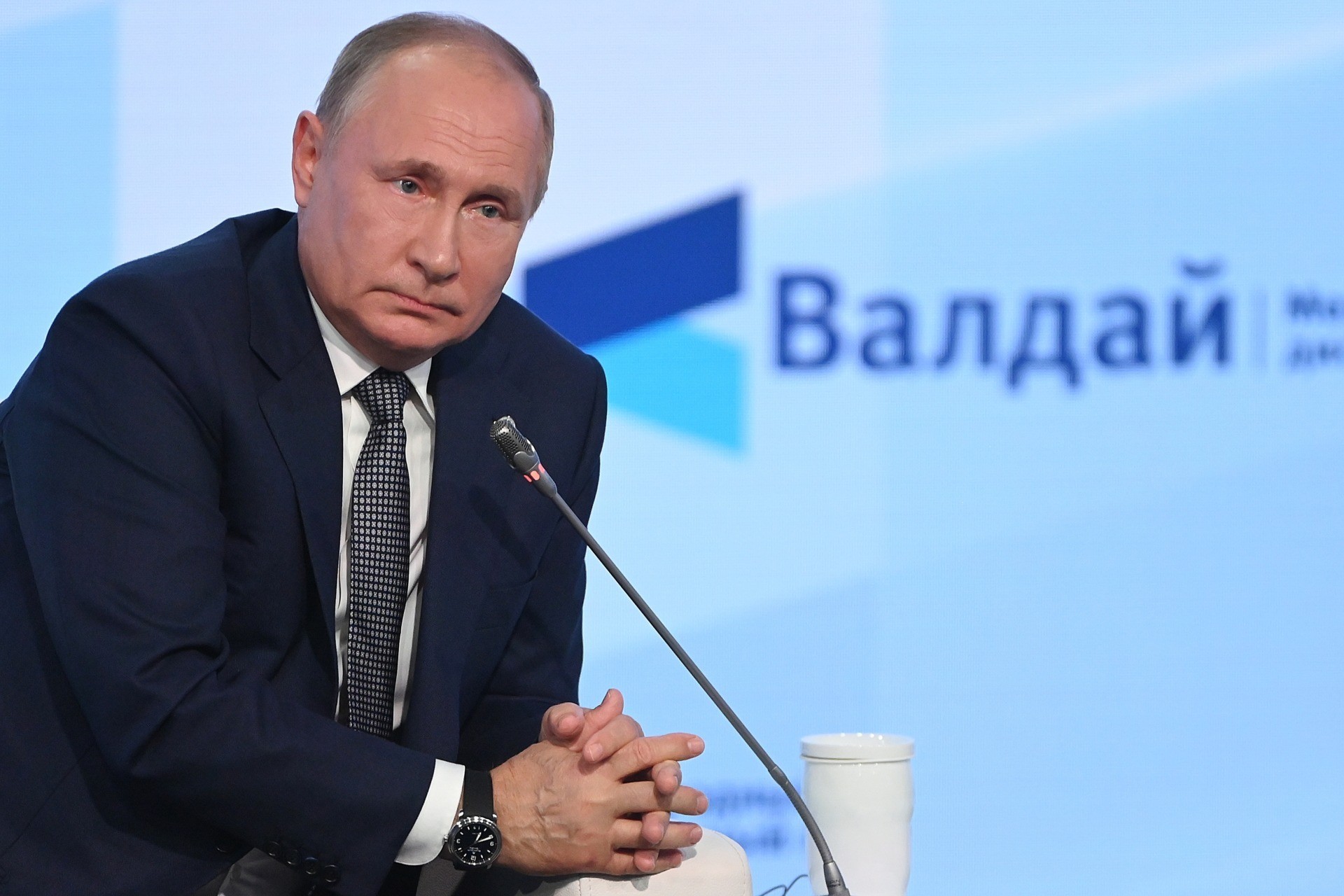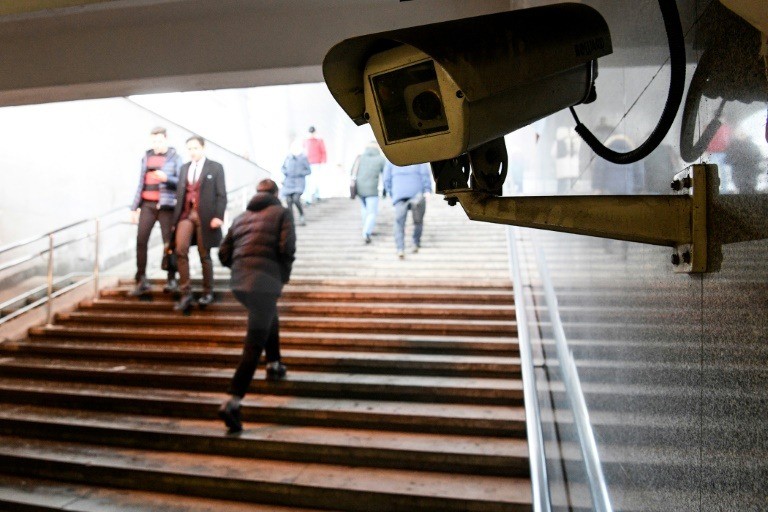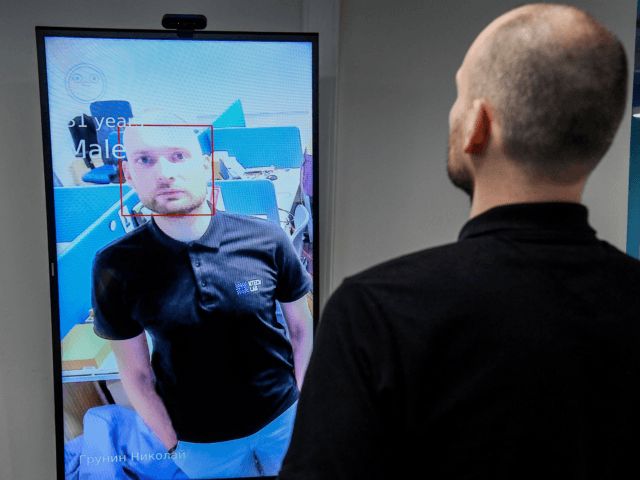Dozens of Russian schools have deployed advanced biometric security systems, including facial and silhouette recognition technology, to prevent people “wanted by the authorities or potentially dangerous” from entering school grounds, Russian state media reported Tuesday.
Russia’s Tass news service quoted Andrei Telenkov, CEO of a leading surveillance company called NtechLab, explaining his company’s products use “video surveillance with different options, namely the facial recognition access control, and silhouette recognition” to spot individuals on the “so-called black lists” when they approach schools.
Tass noted that NtechLab uses “self-learning neural networks” to refine its facial recognition systems. The company received millions of dollars in funding from the Russian government to develop its technology.

A sign sits on a ticket gate equipped with a facial recognition fare payment system – Face Pay – at Turgenevskaya metro station in Moscow on September 23, 2021, as the Russian capital tests the new system. (Photo by NATALIA KOLESNIKOVA/AFP via Getty Images)
Telenkov admitted that some Russian parents are “strongly against” using biometric technology to monitor their children. He promised the company would keep facial and silhouette data it harvested anonymous.
Russia’s facial recognition networks are notoriously “leaky,” in part because authoritarian leader Vladimir Putin is rushing to catch up with China’s gigantic surveillance state.

Russian President Vladimir Putin gestures attends the annual meeting of the Valdai Discussion Club in the Black Sea resort of Sochi, Russia, Thursday, Oct. 21, 2021. (Maksim Blinov, Sputnik, Kremlin Pool Photo via AP)
Stolen biometric data is routinely sold on a thriving black market known as probiv, a Russian slang term meaning “look up” that roughly describes how the marketplace works: aspiring criminals provide a scrap of personal data about their intended victims, and hackers rush to sell them additional information harvested from cracked systems and leaky databases. The probiv network reportedly has at least 50,000 members buying and selling stolen personal data.
Several hefty lawsuits have been filed against the Russian government for abusing or improperly safeguarding facial recognition data. One litigant, a young woman working for a digital rights activist group, said she only needed to provide a single photo of herself and pay the equivalent of $200 to purchase an avalanche of stolen data from hackers, including a list of every location Moscow’s 200,000-camera surveillance system – powered by NtechLab software – had spotted her visiting during the previous month.

Moscow is using its network of facial recognition cameras to help in the battle against the coronavirus. © AFP Kirill KUDRYAVTSEV
NtechLab’s products won the Face Recognition Vendor Test competition hosted by the U.S. National Institute of Standards and Technology, a division of the U.S. Commerce Department, in May 2021. NtechLab bested over a hundred competitors, including American, Chinese, and Israeli companies, to win the prize.
In 2017, NtechLab won a $25,000 prize in a similar competition held by the U.S. intelligence community. The company won the first Innovation League award this month for promising start-ups presented by the G20 international economic forum.
The Russian company has some big overseas clients, including companies in India, Argentina, and the United Arab Emirates. NtechLab worked closely with leading Chinese companies to develop facial recognition systems for law enforcement and is rumored to have contracts with the Russian military.
International watchdogs like Amnesty International and Human Rights Watch cite Russia’s development of advanced facial recognition technology as a major threat to privacy and political freedom.
These critics note Putin’s government does not hesitate to use facial recognition as a tool for cracking down on dissent, giving every attendee at a protest rally good reason to fear oppressive security agencies will identify them from crowd footage and track them down. They also noticed that Russia’s elaborate surveillance systems seem curiously prone to convenient “failure” when it comes to monitoring misdeeds by agents of the state.
The Tass article on NtechLab’s rollout in Russian schools mentioned many of the test schools are located in the “far East,” which invites uncomfortable comparisons with China’s nefarious racial profiling computer system – a network that can monitor oppressed minorities like the Uyghur Muslims by using facial recognition algorithms to identify the racial background of everyone walking past surveillance cameras.

COMMENTS
Please let us know if you're having issues with commenting.